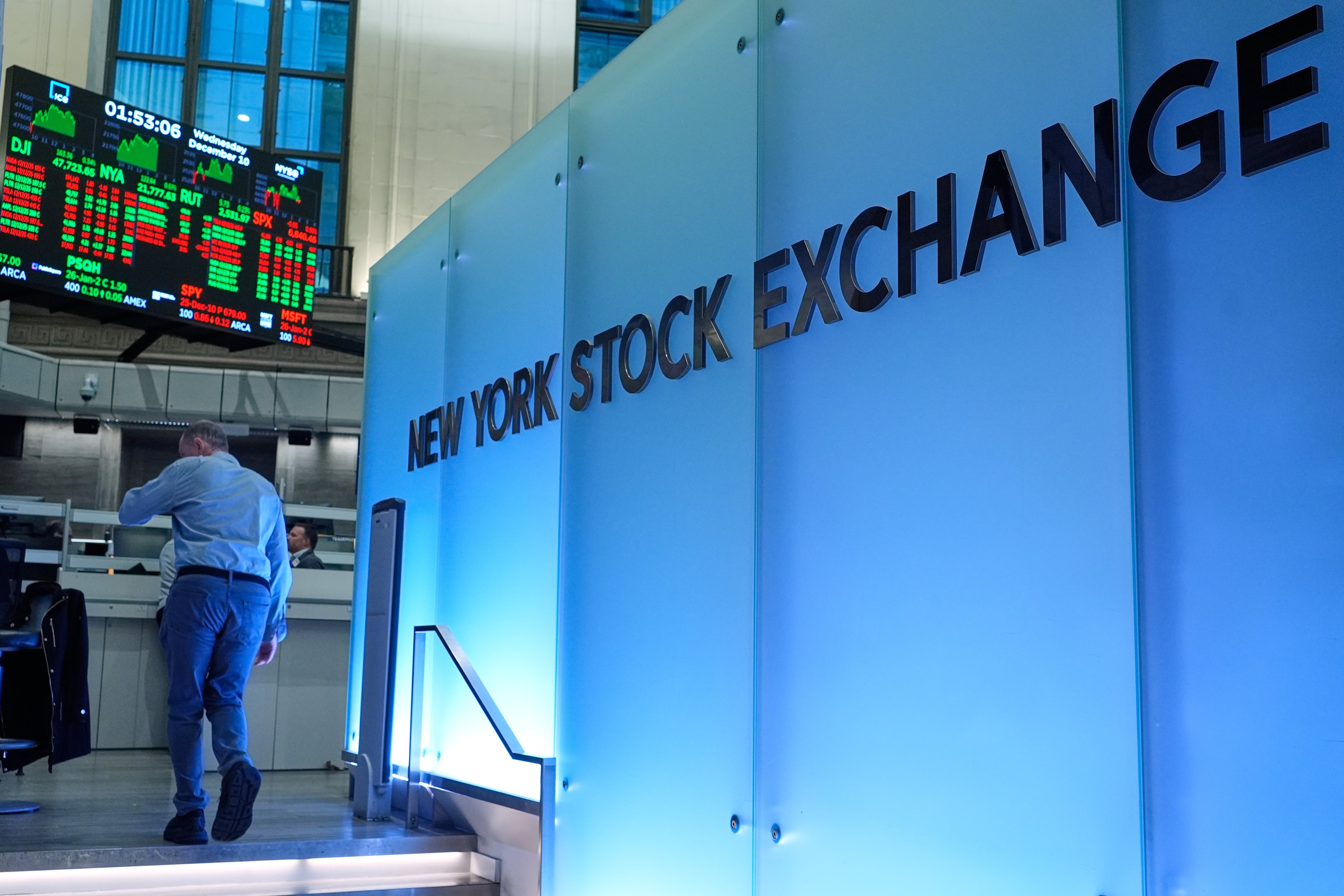NEW YORK (AP) — Stocks tumbled on Wall Street Tuesday as a trade war between the U.S. and its key trading partners escalated, wiping out all the gains for the S&P 500 since Election Day.
The tariffs between the U.S., China, Canada, and Mexico helped extend a recent slump for U.S. stocks that was prompted by signs of weakness in the economy.
The S&P 500 fell 1.7%, with every sector in the benchmark index losing ground. The Dow Jones Industrial Average shed 722 points, or 1.7%, as of 11:03 a.m. Eastern time.
The Nasdaq composite fell 1.5%. The tech-heavy index is on track to posting a 10% decline from its most recent closing high, which is what the market considers a correction. Technology stocks helped drive much of the market's gains in 2024, but have been losing ground and acting as a heavy weight so far in 2025.
Markets in Europe fell sharply while stocks in Asia saw more modest declines.
The drops follow a steep sell-off Monday. Altogether, the decline has wiped out all of the markets’ gains since President Donald Trump’s election in November. That rally had been built largely on hopes for policies from Trump that would strengthen the U.S. economy and businesses. Worries about tariffs raising consumer prices and reigniting inflation have been weighing on both the economy and Wall Street.
Imports from Canada and Mexico are now to be taxed at 25%, with Canadian energy products subject to 10% import duties. The 10% tariff that Trump placed on Chinese imports in February was doubled to 20%.
Retaliations were swift.
China responded to new U.S. tariffs by announcing it will impose additional tariffs of up to 15% on imports of key U.S. farm products, including chicken, pork, soy and beef, and expanded controls on doing business with key U.S. companies. Canada plans on slapping tariffs on more than $100 billion of American goods over the course of 21 days. Mexico also plans tariffs on goods imported from the U.S.
The tariffs are prompting warnings from retailers, including Target and Best Buy, as they report their latest financial results. Target slumped 5.4% despite beating Wall Street's earnings forecasts. there will be “meaningful pressure” on its profits to start the year because of tariffs and other costs.
Best Buy plunged 14.2% after giving investors a weaker-than-expected earnings forecast and warning about tariff impacts.
“International trade is critically important to our business and industry," said Best Buy CEO Corie Barry.
Barry said China and Mexico are the top two sources for products that Best Buy sells and it also expects vendors to pass along tariff costs, which would make price increases for American consumers likely.
The warnings are coming in as companies close out their latest round of earnings reports. Companies in the S&P 500 reported broad earnings growth of 18% in the fourth quarter. Wall Street has already trimmed expectations for the current quarter to about 7% growth from just over forecasts of 11% at the beginning of the year.
Worries about profits follow a series of economic reports with worrisome signals that include U.S. households becoming more pessimistic about inflation and pulling back on spending. Consumer spending has essentially driven U.S. economic growth in the face of high interest rates.
Wall Street has been hoping that the Federal Reserve will continue lowering interest rates in 2025. The central bank has signaled more caution, though, partly because of uncertainty surrounding the economic impact of tariffs. The Fed is expected to hold rates steady at its upcoming meeting later in March.
The Fed raised interest rates to their highest level in two decades in order to tame inflation. It started cutting its benchmark rate in 2024 as the rate of inflation moved closer to its target of 2%. But, inflation remains stubbornly just above that target and tariffs threaten price increases that could fuel inflation.
In the bond market, Treasury yields sank. The yield on the 10-year Treasury fell to 4.12% from 4.16% late Monday. It’s down sharply from last month, when it was approaching 4.80%, as worries have grown about where the U.S. economy is heading.
___
AP Business Writers Matt Ott and Elaine Kurtenbach contributed.









